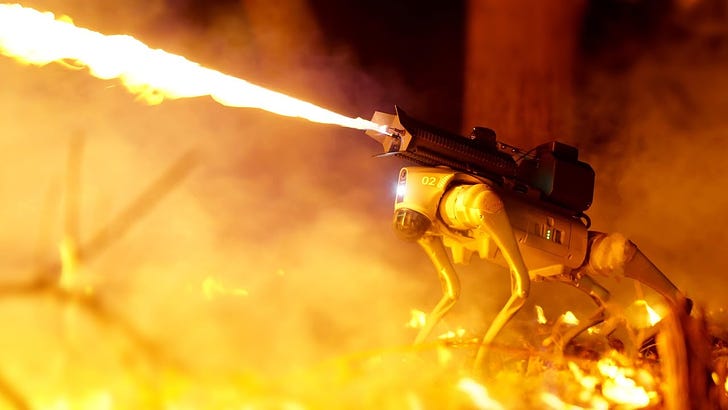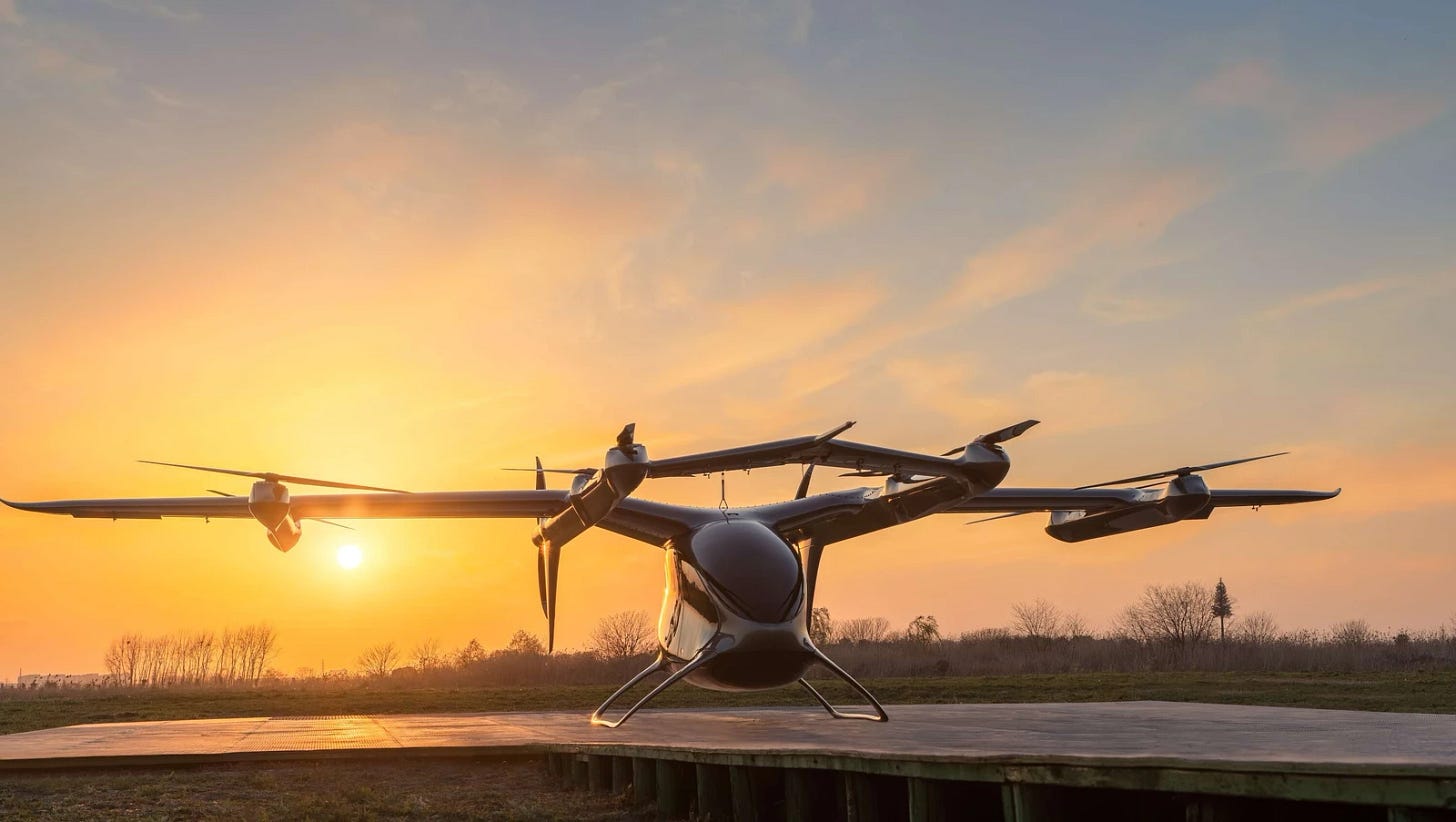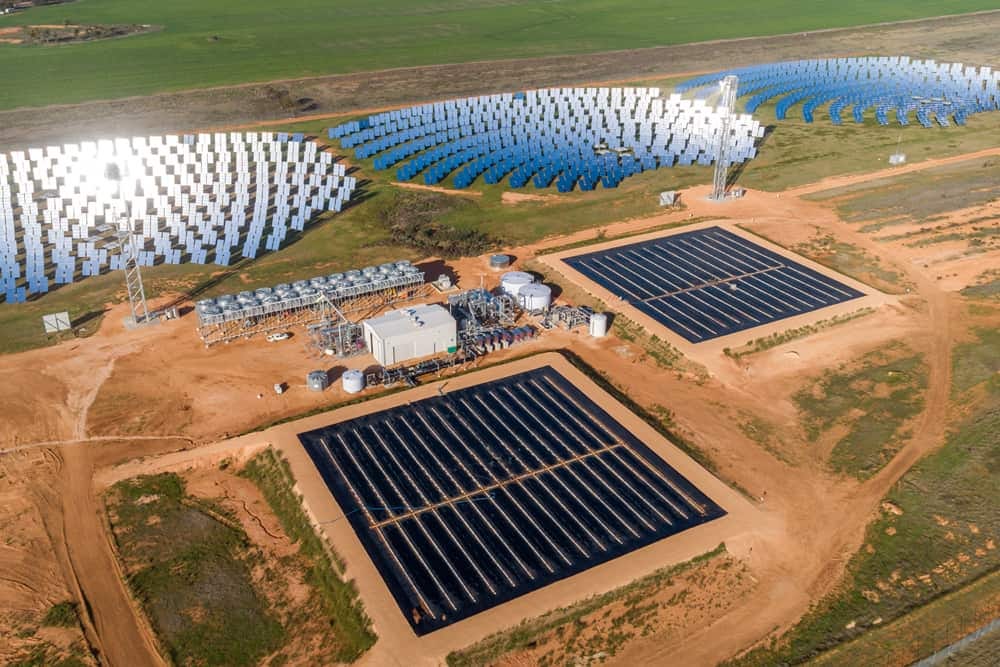🤖 Flamethrower Robotic Dogs, ⚙️ Rapid EV Charging Breakthroughs, and 💎 AI-Powered Gene Editing
Thomas's Innovation Wrap #75
Greetings,
After a not-so-brief 32-month hiatus, I’m thrilled to say the Innovation Wrap is back!
In August 2021, I had to press pause on the Innovation Wrap due to potential conflicts with my day job. However, I’ve recently found an innovative solution: starting a new investment firm with my talented co-founder, Armina Rosenberg.
Armina and I founded Minotaur Capital with the vision of building a cutting-edge investment firm that integrates technology into the core of our investment process. As the AFR reported in December, our first fund is set to be truly unique:
Sources said their first fund will be far from ordinary, built using artificial intelligence at its core to help uncover winning ideas and manage risk.
Launching Minotaur has been an exhilarating journey, and I’m eager to dive back into global markets. For Australian Wholesale Investors, our fund will be open for investment within the next couple of weeks. If you’d like to learn more, feel free to email me or visit our website.
But for now, let's jump right into the latest and greatest in technology, innovation, and finance!
🤖 Robotics
If you’ve ever thought, “You know what these robotic dogs are missing? Flamethrowers,” then you’re in luck. Throwflame, an Ohio-based flamethrower manufacturer, is now selling the Thermonator - a robotic dog equipped with a flamethrower that can shoot fire in a 30-foot stream. The fiery beast will set you back US$9,240.
“Thermonator is the first-ever flamethrower-wielding robot dog. This quadruped is coupled with the ARC Flamethrower to deliver on-demand fire anywhere!” the company’s website excitedly says.
Tesla's Optimus humanoid robot could be ready for sale by the end of 2024. Elon Musk believes robot sales could become a larger part of Tesla's business than car manufacturing.
Musk told investors on a conference call that he guessed the Tesla robot, called Optimus, would be able to perform tasks in the factory by the end of this year.
⚙️ Mobility
Musk has also gone all-in on autonomous driving, saying that those who don’t believe in Tesla’s ability to achieve this goal shouldn’t invest in the company. He also reiterated his vision of Tesla operating a large fleet of robotaxis.
“If somebody doesn’t believe Tesla is going to solve autonomy, I think they should not be an investor in the company,” the chief executive officer said during Tuesday’s quarterly earnings call. “We will, and we are.”
AutoFlight, a Shanghai-based flying taxi company, claims China's eVTOL (electric vertical take-off and landing) industry is edging ahead of Western rivals due to supportive regulators and technological breakthroughs (see the FT article). The global eVTOL market is forecast to be worth $1.5 trillion annually by 2040.
China’s AutoFlight Group won airworthiness certification from the Civil Aviation Administration of China in late March for the design and parts for its unmanned CarryAll aircraft — a global first for an eVTOL weighing more than 1 tonne being cleared by regulators.
AutoFlight has recently achieved significant milestones, such as completing the longest single-battery flight for a five-seater eVTOL and conducting the first inter-city, cross-sea demonstration flight. The company is currently focusing on China's competitive logistics sector and has secured over 1,000 orders, although many of these are non-binding at this stage.
CATL, the world's largest EV battery maker, has unveiled its new Shenxing Plus battery pack, which can provide a car with 600 km (370 miles) of range from just a 10-minute charge. On a full charge, the lithium-iron-phosphate battery delivers an impressive 1,000 km of range.
The world’s biggest maker of clean-car batteries said it’s responding to drivers who still have anxiety about range and charging infrastructure. The two issues are major hurdles to more widespread adoption of EVs.
👓 Virtual and Augmented Reality
Meta is now in the operating system business after Zuckerberg announced on his Instagram that they’re opening up the Meta Horizon VR operating system to third-party hardware providers. This essentially aims to recreate the “Android vs iOS” smartphone dynamic for VR headsets.
Zuckerberg imagined a device that may “come out of the box with Xbox controllers,” for example.
Meta's Reality Labs division reported record Q1 revenue of $440 million, up 30% year-over-year, driven by strong sales of the Quest 3 headset. However, revenue is still down compared to the previous two years.
This suggests Quest 3 is continuing to sell after its launch quarter, which saw Reality Labs' highest quarterly revenue ever, though isn't maintaining post-launch sales momentum as well as Quest 2 did (though it does have higher retention).
A cheaper Quest 3 model is rumoured to be launching soon to replace the Quest 2, which Meta believes will be crucial for Reality Labs' growth prospects this year. The division reported a quarterly "loss" of $3.85 billion, though over 50% of this is investment in future Augmented Reality glasses. Zuckerberg expects the division to be profitable in the 2030s.
💎 Artificial Intelligence
The AI revolution is in full swing, with major players like Microsoft, Elon Musk, and Saudi Arabia making significant investments and advancements in the field.
Microsoft has released Phi-3-mini, a lightweight AI language model that rivals much larger models like GPT-3.5 but is small enough to run on a smartphone. By carefully curating high-quality training data, Microsoft has dramatically increased the capability of its small model, potentially reducing the need for large, energy-hungry models. (See the paper.)
Elon Musk's AI startup xAI is close to raising $6 billion at an $18 billion valuation. The pitch involves leveraging data from Musk's various companies, including Tesla, SpaceX, Boring Company, and Neuralink, to train xAI's chatbot Grok and connect the digital and physical worlds.
Saudi Arabia is investing heavily to become an AI superpower, creating a $100 billion fund for AI and other tech, with plans to invest another $40 billion in AI companies. The investments are part of the kingdom's "Vision 2030" plan to diversify its economy, but the geopolitical implications are tricky as the US and China vie for influence in the region.
In the enterprise space, SAP CFO Dominik Asam believes AI is a historic disruption for the tech industry, not just hype. AI has helped drive SAP's cloud transition, opened new revenue opportunities, and is being used internally to boost productivity and cut costs. Asam expects a future inflection point in AI's impact on earnings, comparing its trajectory to the dot-com boom and bust.
Coca-Cola is also betting big on AI, signing a 5-year, $1.1 billion partnership with Microsoft to streamline operations, manage costs, and boost productivity across marketing, manufacturing, supply chain, and more.
Other notable developments include SenseTime's shares surging over 30% after launching their updated large language model, SenseNova 5.0, which they claim is on par with OpenAI’s GPT-4 Turbo, and Profluent, a Berkeley-based startup, developing a generative AI system that can create blueprints for new CRISPR gene editors to precisely edit human DNA, potentially accelerating the discovery of new treatments for genetic diseases.
Reid Hoffman also explored the current state of virtual avatars by interviewing his virtual self.
💊 Health
Moderna is partnering with OpenAI to automate nearly every business process using ChatGPT. The goal is to accelerate the rollout of 15 new products in the next five years. The deal includes 3,000 Moderna employees getting access to ChatGPT Enterprise, which is built on OpenAI's most advanced language model, GPT-4. So far, Moderna employees have already created over 750 unique versions of ChatGPT tailored to specific tasks across the business.
Bancel said he’s been obsessed with ChatGPT since Christmas of 2022, and it’s one of four apps at the bottom of his iPhone, along with the apps for phone, text and internet. His goal is for employees to use it no fewer than 20 times a day, and so far, they’re keen, he said.
In the realm of Alzheimer's treatment, Biogen's drug Leqembi is gaining traction, with sales tripling sequentially in Q1 2024 to reach $19 million.
“We see momentum building at a steady pace for Leqembi,” said Biogen CEO Christopher Viehbacher in a statement. “In particular, we were encouraged that Leqembi in-market revenue for the first quarter nearly tripled sequentially and we saw a significant build in month-to-month new patient starts in the first quarter.”
Walgreens is expanding its presence in the cell and gene therapy market by opening a new 18,000-square-foot facility in Pittsburgh. The facility will serve as a conduit for drug manufacturers, treatment centres, and insurance companies, ensuring that the right patient receives the correct drug.
Manufacturers will send the treatments to the facility, and Walgreens will carry out all the necessary checks and verifications to ensure the right patient gets the correct drug.
💻 Chips and Computing
Malaysia has unveiled plans to build Southeast Asia's largest IC design park. Set to start operations in July 2024, the park aims to support Malaysia's ambition to move up the value chain from packaging and testing to high-value chip design.
The project, supported by the central government, aims to welcome over 300 IC design engineers to the park in its first year and expects the number to grow each year.
Scientists in Korea have made a breakthrough in non-volatile memory technology using phase-change memory (PCM). This development could potentially combine the speed of DRAM with the data retention of NAND flash, making it a promising candidate for the next generation of memory technology.
The new method developed in Korea has reportedly created a device with up to 15 times lower power consumption than previous attempts at phase-change memory. At the same time, its manufacturing costs are reasonable, so it's been able to resolve the two biggest issues with phase change memory, making a true breakthrough in the quest for the world's first non-volatile DRAM.
🛰️ Space
Rocket Lab has been awarded a $32 million contract by the US Space Force to develop a spacecraft for the VICTUS HAZE mission. The mission aims to test the military's ability to quickly position satellites in response to threats.
"VICTUS HAZE builds on Rocket Lab's proven track record of delivering launch and spacecraft solutions that enable advanced missions on accelerated timelines. The ability to design, build, launch and operate a spacecraft within one streamlined team is rare and will deliver unparalleled speed and value to the nation. We're excited to take TacRS to the next level," Beck added.
🌞 Renewables
Australian solar pioneer Raygen Resources has raised $51 million from SLB and Breakthrough Victoria to scale up its technology that uses giant mirrors and water reservoirs to make solar power available after dark.
Aside from photons of light, Raygen’s solar cells also capture the heat energy generated by the concentration of sunlight, and store that thermal energy in water dams that act like a thermos. The hot water can then be used to spin a turbine and generate power at any time, effectively making solar power available after dark when prices are highest.
💲 Finance
CoStar, a leading real estate information company, is acquiring Matterport, a leader in providing virtual 3D walkthroughs of properties, in a deal valued at $1.6 billion.
“This transaction is another significant milestone that acknowledges the groundbreaking work Matterport has accomplished in 3D digital twin technology and AI-driven property intelligence,” said Matterport Chief Executive RJ Pittman.
Alphabet joined the $2 trillion market cap club after market views flipped to it being an AI winner.
The stock rose 10% to $171.95, its biggest one-day jump since July 2015, resulting in a valuation of $2.15 trillion. The advance added almost $200 billion to the company’s market capitalization, making for one of the largest single-day value adds in stock market history.
Have a great week,
Thomas
About Thomas Rice
Thomas Rice co-founded Minotaur Capital, and is based in Sydney, Australia. You can find him on the platform-formerly-known-as-Twitter at @thomasrice_au.





super pumped this is back
Great that you are back writing again!